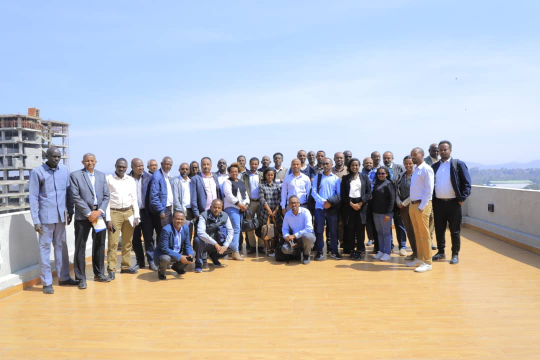A workshop was organized on January 15 to validate Ethiopia’s clean cooking roadmap 2025-2035, developed by the Ministry of Water and Energy (MoWE). Experts from ministries, regional and city administration offices, civil society organizations, universities, research centers, and NGOs gathered to discuss the roadmap. Recommendations from participants in the IGE program have been included in the roadmap.
The roadmap delves into the urgency of transitioning to clean cooking technologies in Ethiopia, highlighting the health risks, environmental degradation, and economic inefficiencies associated with traditional biomass fuels.
Provides a holistic approach to clean cooking
The document includes three alternative adoption pathways based on different levels of interventions, realistic targets for clean cooking adoption, identified barriers and drivers, and proposed policy and investment recommendations by focusing on geographical and sectoral integration. The roadmap covers all regions of Ethiopia, emphasizing areas with the lowest access rates of clean cooking solutions. It combines health, energy, environment, gender, and economic aspects to ensure a holistic approach to clean cooking adoption.
Highlights barriers and drivers for a transition
The document underscores the barriers to clean cooking adoption, such as affordability, awareness, technological limitations, policy gaps, and the need for community engagement, while also emphasizing drivers like policy incentives, technological advancements, economic shifts, international support, and community involvement.
Recommendations include governmental initiatives, public awareness campaigns, technological advancements, leveraging economic growth and demographic shifts, international partnerships, and community and private sector engagement to promote the adoption of clean cooking technologies.
Recommendations from a transition initiative are included
The Ethiopian participants in EfD’s Inclusive Green Economy in Practice program of 2023, IGE Fellows, worked on a Transition Initiative (TI) where they focused on Incentives for private sector engagement in a clean cooking transition. An integral part of the IGE program is the collaboration with academia, both local researchers and international experts on energy transitions.
While preparing the roadmap, the IGE fellows presented their TI to the higher officials of MoWE, which has created an awareness of the important role of the private sector and the need to make incentives through tax exemptions. The roadmap considers the recommendation provided by the 2023 IGE fellows transformation initiatives (TI).
Involvement of the private sector is crucial
The recommendations from the TI include tax exemption and enhancing access to finance for the private sector to foster the advancement of clean cooking technology.
By integrating the input from the TI document into the clean cooking roadmap, the government leverages the recommendations proposed by the IGE fellows to drive impactful change in promoting the adoption of clean cooking technologies in Ethiopia, thereby contributing to improved public health, environmental sustainability, and economic development in the country.
Facts
The IGE Program is a capacity development program aimed at connecting civil servants with researchers to support the implementation of evidence-based policies.
The Ethiopian IGE Fellows of 2023 are five civil servants from the Ministry of Water and Energy and the Ministry of Finance.
By: Asaye Ketema.
